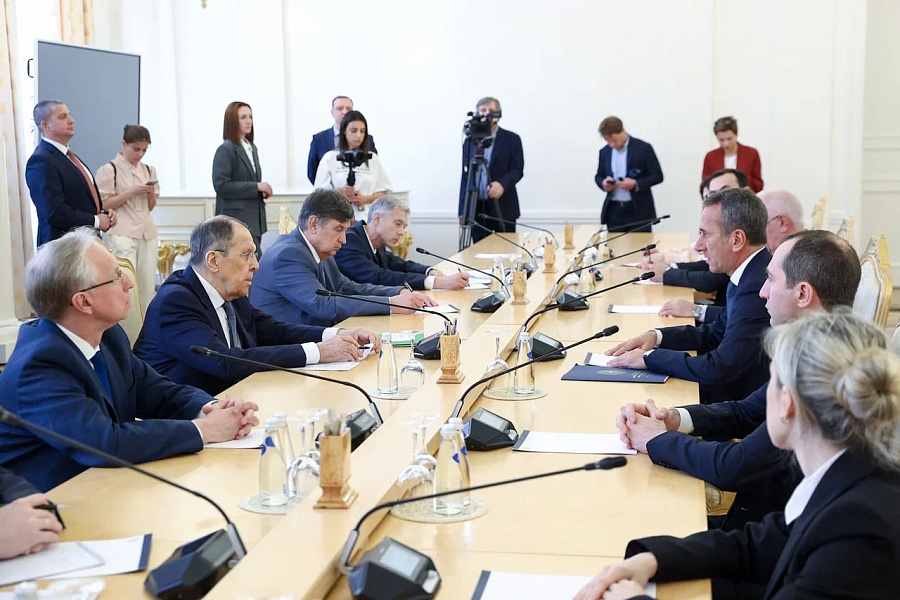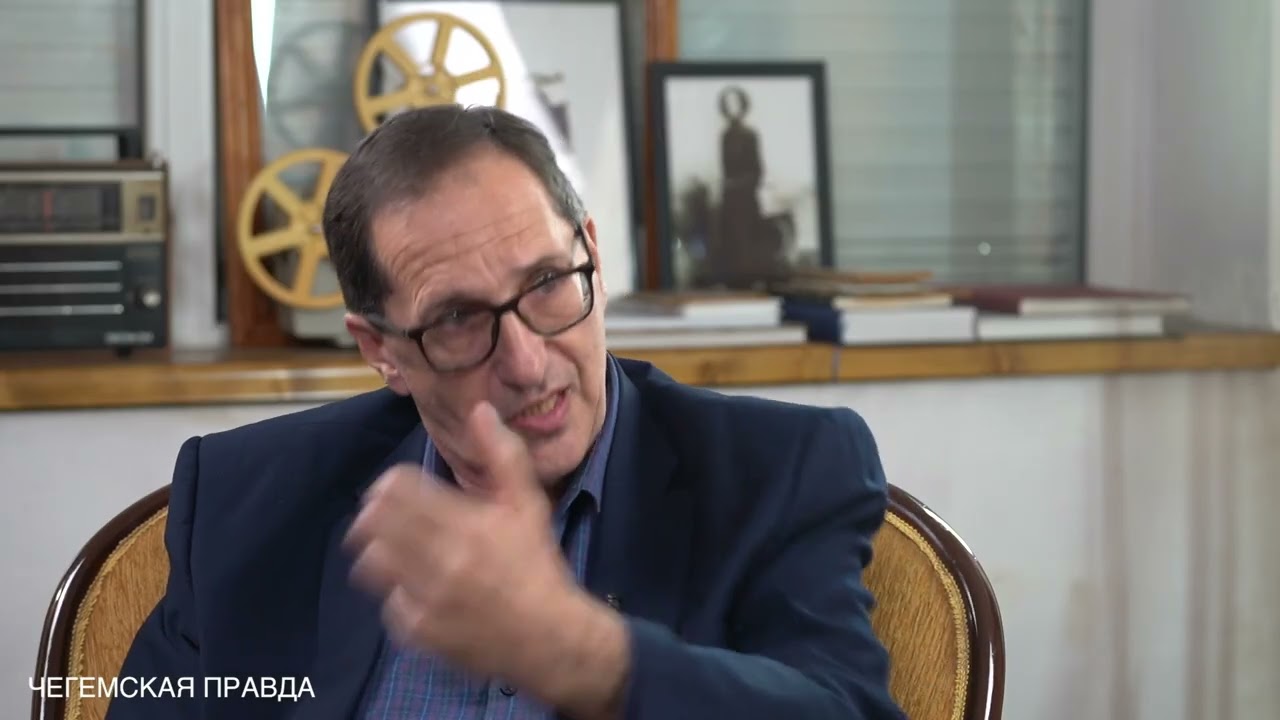Georgian Dream on Territorial Integrity

Campaign signs from “Georgian Dream” and the United National Movement
As Georgia prepares for parliamentary elections on October 26, the ruling party, “Georgian Dream,” has declared that restoring the country’s territorial integrity will be its top priority.
In the party’s political rhetoric, promises have emerged to resolve conflicts peacefully and to condemn Mikheil Saakashvili’s party for allegedly provoking the August 2008 war. This marks the first time in 12 years of governance that the party has placed the issue of territorial integrity at the center of its election campaign.
What has changed over the years? Can closer ties with Russia truly help Georgia regain control of its lost territory?
“One of our most important national tasks is to live in a united Georgia. Events in our region are evolving rapidly. In this context, the groundwork for restoring the country’s territorial integrity peacefully could be laid at any moment… To [seize this chance], we [Georgian Dream] need to secure a constitutional majority in the new parliament.” These remarks were made by former Prime Minister Bidzina Ivanishvili, the wealthiest and most influential figure in the country, who has ruled Georgia for the past 12 years.
In another campaign speech, Ivanishvili labeled the Georgian side as the instigator of the August war and suggested offering an apology to the Ossetian people:
“Right after the elections on October 26, when those responsible for the war are held accountable, and when all those guilty of destroying the Georgian-Ossetian brotherhood and coexistence face the strictest legal consequences, we will certainly find the strength to apologize for what the treacherous ‘National Movement’ did in 2008 by igniting flames among our Ossetian brothers and sisters,” Bidzina Ivanishvili stated during a meeting with voters in the city of Gori, near the occupied Tskhinvali region, on September 14.
Amid Georgia’s significant rapprochement with Russia in recent years, such statements have been interpreted by many as a signal that Moscow is willing to assist Tbilisi in restoring relations with the breakaway regions—an argument that clearly benefits “Georgian Dream.”
Parliamentary Elections in Georgia
On October 26, 2024, Georgia will hold parliamentary elections that will be crucial for the country’s political and geopolitical trajectory. Voters will face a choice between the pro-Russian “Georgian Dream” and the pro-Western opposition.
According to polls, the ruling party’s approval rating is at a historically low level—only 32%. To secure a constitutional majority in parliament, “Georgian Dream” needs to garner over 60% of the votes, which seems unlikely.
Experts note that these elections will determine not only the domestic political situation in Georgia but also its international relations. If “Georgian Dream” remains in power, the country’s European integration process may be frozen, as relations between Tbilisi and Western countries have noticeably cooled due to the Georgian authorities’ actions aimed at strengthening ties with Moscow.
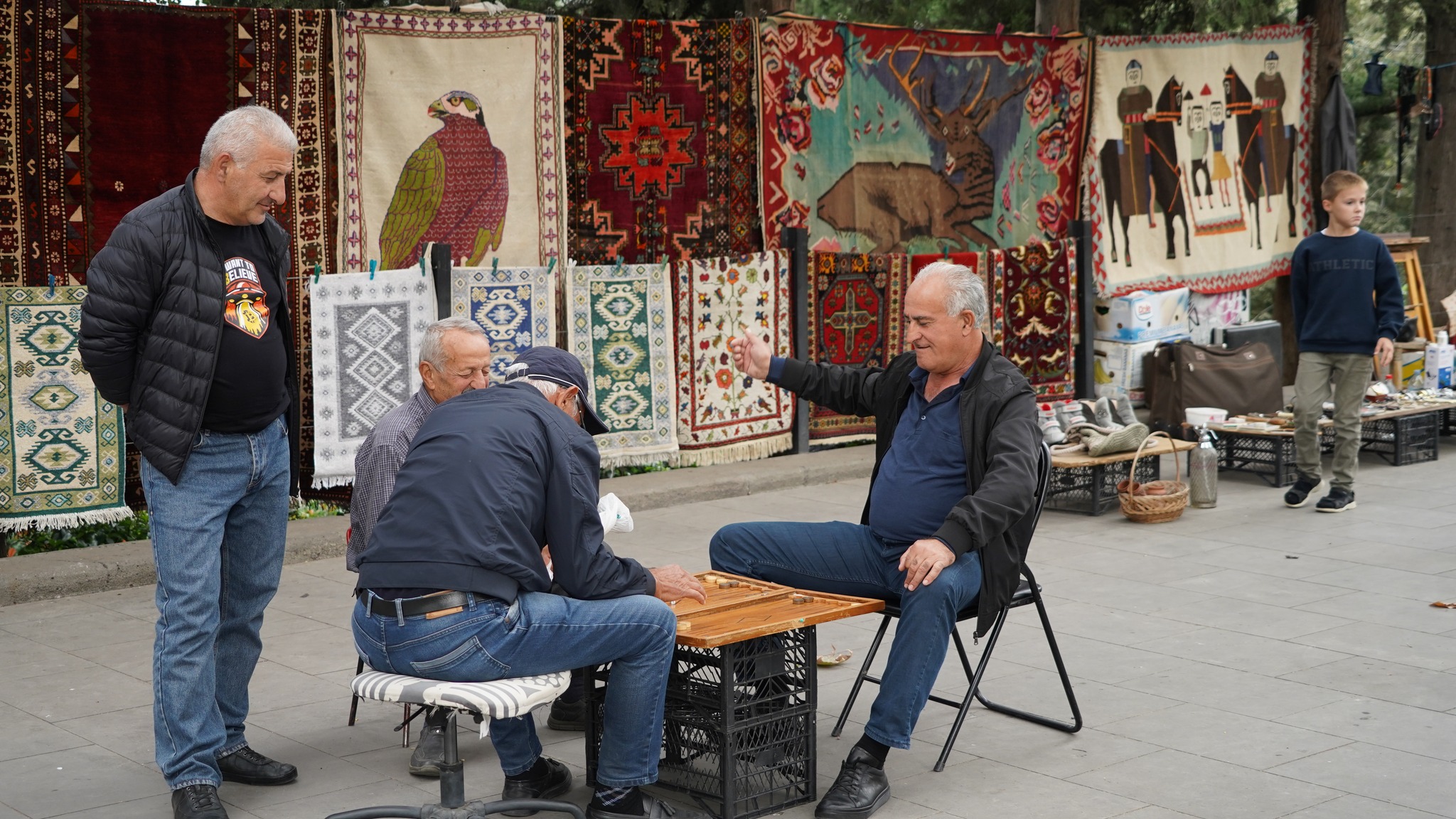
Tbilisi. Merchants on Dry Bridge playing backgammon. Photo: David Pipia/JAMnews. 2024
Restoring territorial integrity has always been an important theme for Georgian society. According to sociological surveys conducted by the International Republican Institute (IRI) in 2023, it remains one of the key issues. However, until recently, this topic had not been at the forefront of the ruling party’s political agenda.
Experts believe that “Georgian Dream” is actively using the issue of territorial integrity in its campaign to divert attention from other pressing matters—such as economic challenges, high unemployment, and rising poverty.
“If we look at the political landscape of modern Georgia, we see that every government facing problems and nearing its lowest popularity levels tries to incorporate the theme of territorial integrity into its election rhetoric. This is not a new ‘trick’ in Georgian politics,” says Vano Abramashvili, an expert who has spent many years studying conflicts.
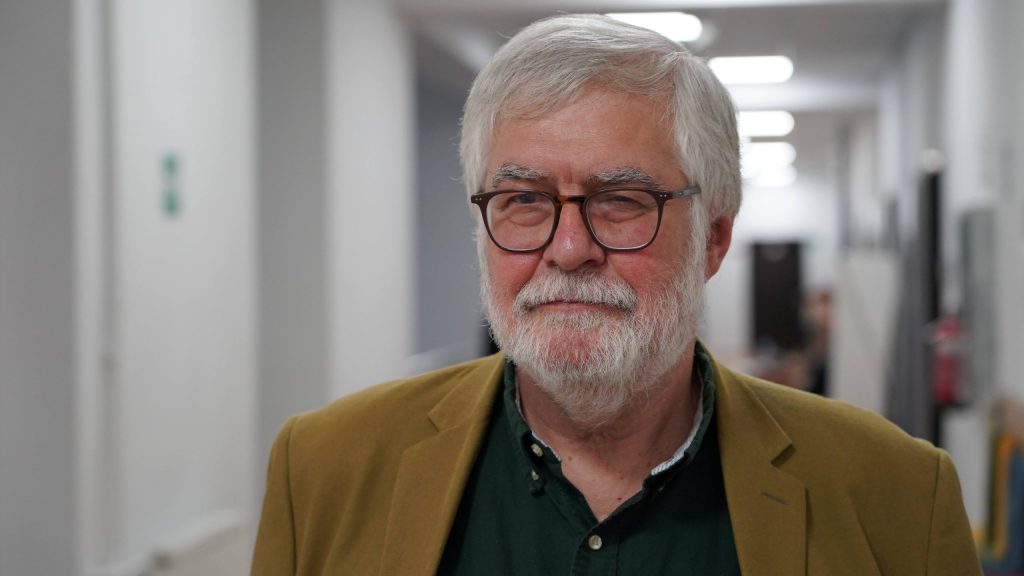
Political Scientist Ghia Nodia Photo: David Pipia/JAMnews
Political scientist Ghia Nodia also asserts that no real changes have occurred that would increase the chances of resolving the conflict.
“The elections are approaching, and this issue is being brought back to the forefront,” he notes.
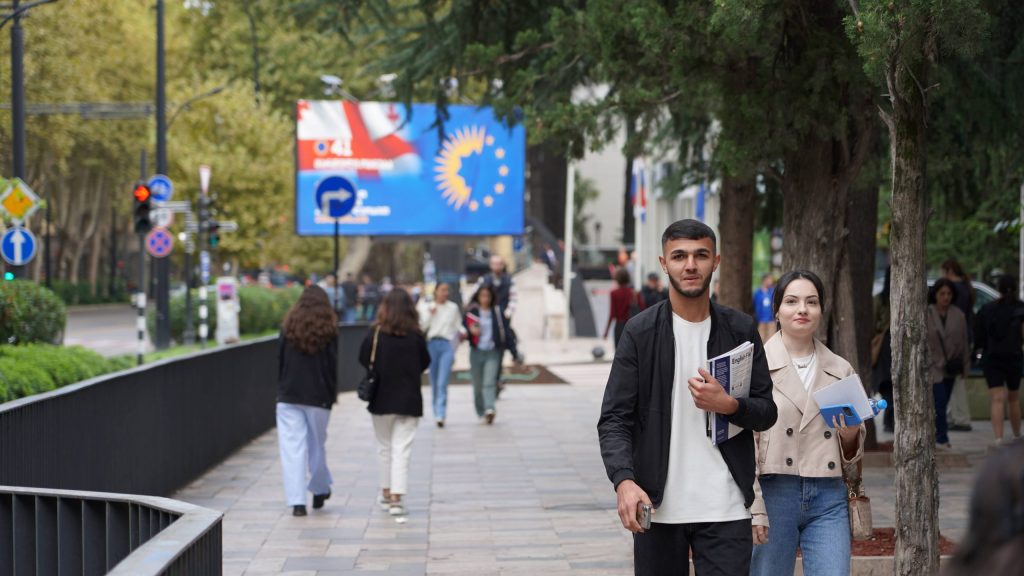
Tbilisi. In the background, there is a campaign sign for “Georgian Dream,” Georgia’s ruling party. Photo: David Pipia/JAMnews
Since coming to power, many have viewed “Georgian Dream” as pro-Russian, but the war in Ukraine has made this fact clear even to skeptics.
Georgia did not join the sanctions imposed against Russia following the outbreak of the war in Ukraine. Furthermore, Tbilisi criticized Kyiv and President Volodymyr Zelensky for allegedly failing to prevent the conflict. The rhetoric of “Georgian Dream” leaders toward Western ambassadors and leaders has become overtly harsh.
The pro-Russian narrative has deepened further during the election campaign.
Members of the Georgian government, including Prime Minister Irakli Kobakhidze and informal leader Bidzina Ivanishvili, have not once referred to Russia and Putin as occupiers in their numerous campaign speeches.
For instance, just recently, while addressing the UN about occupied territories, Kobakhidze also failed to mention Russia.
This position has sparked serious outrage within Georgia, especially among those advocating for European integration. According to polls, around 80% of the population supports Georgia’s accession to the European Union and NATO.
Experts note that the government must navigate between pro-Western rhetoric and actions aimed at strengthening ties with Moscow. For example, “Georgian Dream” has adorned its campaign banners with European Union flags.
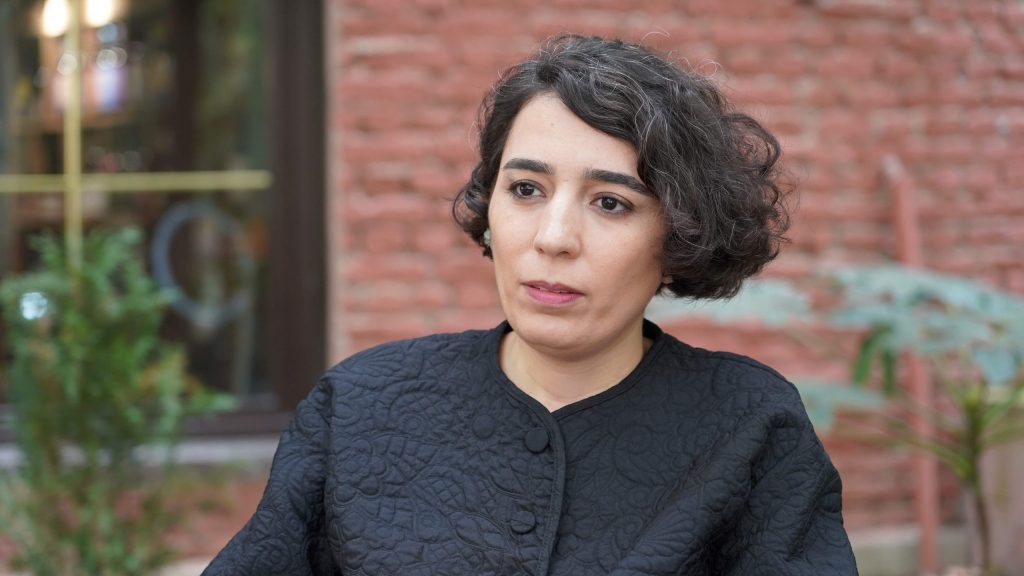
Tamta Mikeladze, laywer and director of the Social Justice Center. Photo: David Pipia/JAMnews
Lawyer and director of the Social Justice Center, Tamta Mikeladze, believes that the emphasis on the issue of territorial integrity serves as a facade behind which the government seeks to obscure changes in the country’s foreign policy.
Previously, rapprochement with Russia was justified by economic interests, but that is no longer sufficient, according to the expert:
“’Georgian Dream’ must demonstrate not only the economic but also the political advantages of closer ties with Russia. The topic of territorial integrity is being used as an argument in that regard.”
Abkhazia and South Ossetia are two regions of Georgia that were occupied by Russia following military conflicts in the early 1990s. As a result of these conflicts, more than 300,000 people were forced to leave their homes, many of whom still cannot return.
Both regions have proclaimed their independence, but it is recognized only by Russia and four other countries within its sphere of influence. The international community continues to regard these territories as part of Georgia, but Tbilisi effectively does not control them.
Russian authorities have made it clear that they do not intend to support the return of Abkhazia and South Ossetia to Tbilisi’s control. Konstantin Zatulin, a representative of Russia’s State Duma, stated that “the train has long left,” suggesting that the issue of restoring Georgia’s territorial integrity is no longer relevant.
Similar themes were present in the statement by Russian Foreign Minister Sergey Lavrov. Speaking from the UN podium, Lavrov made it clear that any negotiations between Georgia and Abkhazia and South Ossetia must be conducted only with their consent, and that Russia would not pressure these republics.
“The current leadership of Georgia is simply assessing the past fairly. They said, ‘We want reconciliation, historical reconciliation.’ In what form this reconciliation might occur depends on those countries themselves: Abkhazia and South Ossetia. They are neighbors of Georgia, and certain contacts between them are inevitable… If the parties are interested, we are ready to help,” Lavrov stated on September 28 at the UN in response to journalists’ questions.
Public responses from Abkhazia and South Ossetia have primarily focused on Ivanishvili’s initiative to apologize to the Ossetian people.
Officials from Tskhinvali and Sukhum noted that any steps toward reconciliation would only be possible on the condition that Georgia recognizes their independence. However, they emphasized that the political status of these republics is not open for discussion.
A representative from the “Presidential Administration” of the occupied Tskhinvali region, Yuri Vazagov, stated that they expect “not only verbal apologies from the Georgians but also practical steps, including within the framework of the Geneva discussions, where the main issue remains the achievement of a legal agreement that mandates security guarantees.”
“Although this statement does not directly concern the Republic of Abkhazia, we want to note that such a statement, if backed by real steps toward reconciliation based on a reassessment of past mistakes and apologies to the peoples of South Ossetia and Abkhazia, a rejection of political and economic pressure, and the signing of a peace treaty, could mark the beginning of a process leading to peaceful coexistence and good neighborly relations,” the Abkhaz Foreign Ministry said in a statement on September 16.
Former Abkhaz Foreign Minister Sergey Shamba stated that “if Georgia apologizes for its actions, then Abkhazia will welcome this first step toward reconciliation,” but he quickly emphasized that “the political status of the republic is not open for discussion.”
Dali Mikiya, a refugee from Abkhazia, believes that the government has done very little over the past 30 years to facilitate the return of displaced persons to their homes and to assist those affected by the war. She notes that “Georgian Dream” has made particularly little progress in this regard:
“They had more opportunities to do something because they inherited a more or less normal country. Yet 30,000 people still lack housing. They will have to wait another 30 years; many won’t even survive to see it. Elderly refugees have passed away without ever returning to their homes.“
Dali Mikiya is actively involved in refugee issues and is well aware of their sentiments.
“The government should apologize not to the Abkhaz or Ossetians, but to us, for the fact that we have lived in hell for 30 years, having lost our own homes.“
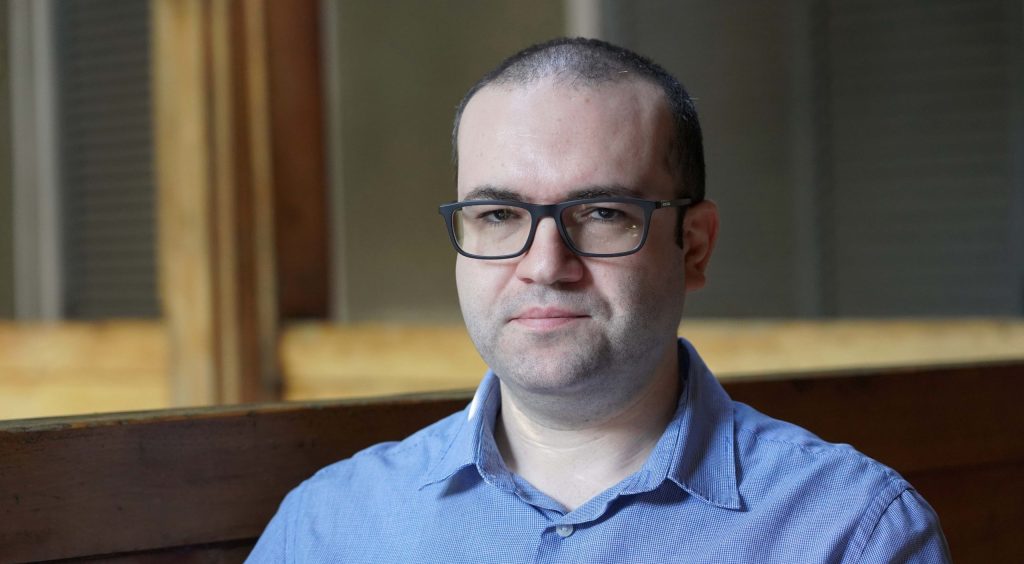
Vano Abramashvili, conflictologist. Photo: David Pipia/JAMnews
Vano Abramashvili notes that refugees have long disappeared from the Georgian political agenda—their voices are unheard, and their needs are rarely discussed. The political class does not see them:
“They have turned into people akin to economic migrants, simply waiting for housing and compensation, and once they receive it, they will no longer be considered refugees. The conditions in which they live, who tries to control their voices and manipulate them—no one is discussing this,” Abramashvili explains.
Experts believe that one of the goals of emphasizing territorial integrity is to discredit the main opponent—the United National Movement led by Mikheil Saakashvili.
Ivanishvili has repeatedly asserted that Saakashvili is responsible for the outbreak of the August 2008 war. This narrative helps “Georgian Dream” create an image of an enemy, which has been the foundation of its political strategy in recent years.
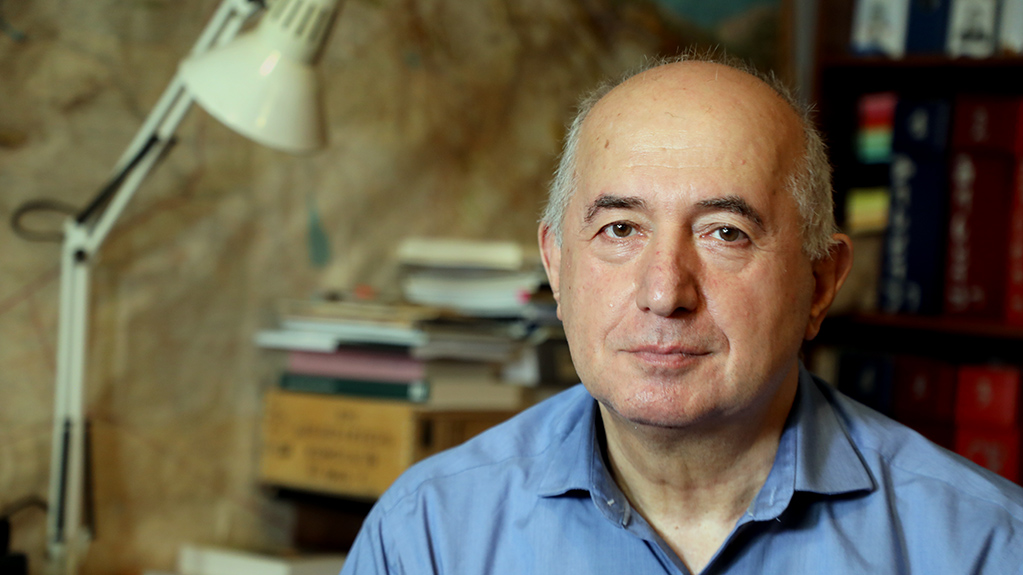
Pata Zakareishvili, conflictologist. Photo: taken from internet
Political scientist Paata Zakareishvili recalls a similar campaign in 2020 when “Georgian Dream” accused the National Movement of ceding several hectares of Georgian territory to Azerbaijan in the David Gareji region, home to an ancient Georgian monastery complex.
In 2020, a month before the parliamentary elections, two innocent people—cartographers who were members of the State Commission for Border Definition with Azerbaijan—were arrested. A large-scale propaganda campaign unfolded on state channels, aimed at tapping into patriotic sentiments.
The slogan “David Gareji is Georgia” was prominently featured on government channels, sparking a wave of patriotic fervor. Social media users who fell for this “bait” even began framing their Facebook profile pictures with this phrase.
Zakareishvili believes that “Georgian Dream” has decided to employ a similar strategy—playing on patriotic sentiments—this time around.
“They are doing the same thing now,” Zakareishvili states. “They need a topic that will divert attention from poverty, unemployment, the war in Ukraine, and many other pressing issues. It should be a topic that resonates with a significant portion of society. That’s it. They know they won’t secure a constitutional majority, and they don’t need one. What’s important for them is to mobilize as many of their voters as possible for the elections.“
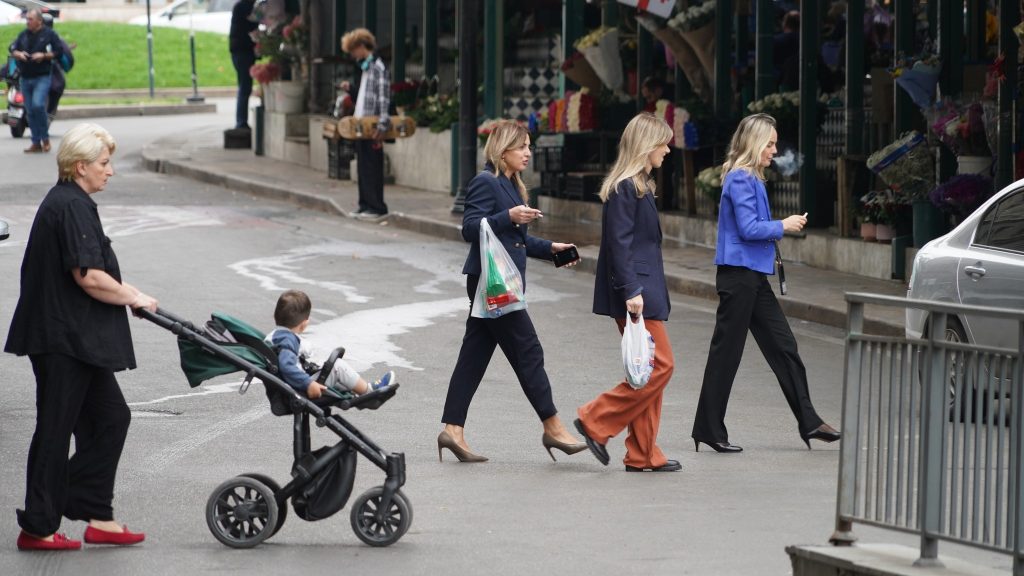
Tbilisi, Rustaveli Prospect. Photo: David Pipia/JAMnews, 2024
Neither Ivanishvili nor any other party leader has clarified how they intend to address this issue.
In discussing conflict resolution, Georgian Dream asserts that it needs to secure a constitutional majority in the upcoming parliamentary elections to do so.
Conversations about the need for constitutional changes have sparked speculation regarding a proposed confederation of Abkhazia and South Ossetia.
“The Constitution of Georgia states that its territory is indivisible. The status of the Autonomous Republic of Abkhazia is outlined, while South Ossetia is not mentioned at all. The authorities need to clarify what they plan to do. The only thing they could change is to replace the period where it states the territory is indivisible with a comma and add that there are exceptional cases, such as the principle of a confederation,” says Paata Zakareishvili.
Experts believe that if Georgian Dream is indeed considering a confederation, it would have to recognize the independence of Abkhazia and South Ossetia, a difficult proposition.
A confederation is a union of two or more states that maintain their sovereignty and remain subjects of international law.
“Neither the voters of Georgian Dream nor the party itself are prepared to discuss this or to make such a compromise [recognizing the independence of Abkhazia and South Ossetia],” says Tamta Mikheladze.
Due to public outrage, Georgian Dream has had to clarify that there is no idea of confederation:
“No recognition or similar anti-national issues are under discussion! It is impossible to agree to a confederation, which would also imply recognizing the independence of the occupied territories!” stated Mamuka Mdinaradze, one of the leaders of Georgian Dream, on October 6.
Constitutional support is the very last step in resolving the conflict, says Vano Abramashvili. It is necessary only after agreements have been reached with the Abkhaz and Ossetians regarding the desired state structure, and after Russian military forces have left these territories:
“But no progress has been made in this direction over the past 12 years. On the contrary, we face an entirely opposite situation—Russia’s aggressive actions and pressure on the de facto authorities of Abkhazia and the Tskhinvali region are increasing. Russia is trying to deepen its presence in these areas. Thus, all the talk from Georgian Dream about returning territories and the need for constitutional changes is simply a significant political, pre-election lie.“
Experts are convinced that there is nothing behind this promise—no plan, no negotiations.
According to experts, the promise to restore the country’s territorial integrity will not yield political dividends for Georgian Dream:
“This conversation is so unfounded that I highly doubt it will have a significant impact on anyone. Perhaps there will be some naive people who believe it, but they will be few,” says Gia Nodia.
“In a few weeks, Georgian Dream itself will forget what it promised,” Vano Abramashvili insists.
